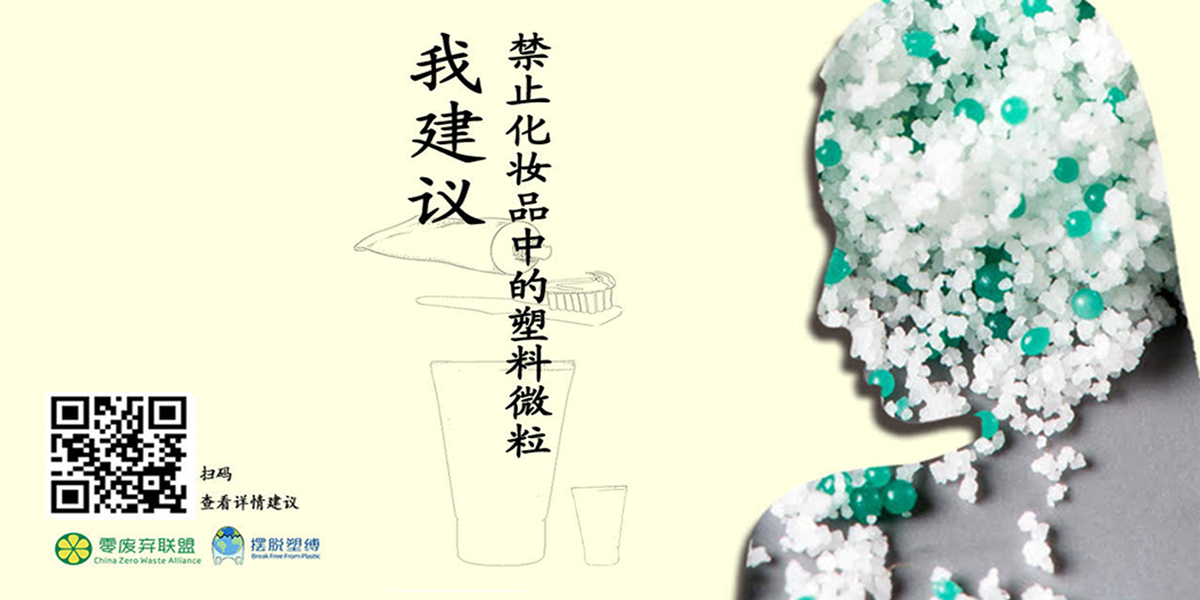In fact, China is the world's largest producer of plastic. In 2019, there was approximately 63000 kt of plastic waste, including more than 20000 kt of single-use plastic products such as plastic bags, agricultural film, packaging materials, bottles, and launch boxes¹. Simultaneously, with the rapid growth of express delivery services since the 2010s, China's waste of express delivery packaging materials has increased significantly. According to a state-run media outlet, the packaging tape used in China can wrap around the earth 1077 times per year²!
The Chinese government has been attempting to solve the rapidly increasing plastic pollution problem and the environmental damage it causes in China and other countries through legislation. The Chinese State Council issued the Notice of the General Office of State Council on Restricting the Production, Sale and Use of Plastic Shopping Bags in 2007, asking supermarkets and shopping malls not to provide free plastic shopping bags³. In 2017, China announced an unprecedented ban on the import of most plastic waste, resulting in a sharp decline in global plastic waste trade flow⁴. Environmental NGOs in China have played an invaluable role in promoting government legislation during this process. China Zero Waste Alliance is one of China's most critical environmental networks⁵.
The China Zero Waste Alliance was founded in 2011 as one of the first Chinese networks focused on the issue of plastic pollution. As a leading alliance, it has a diverse and dynamic body of Chinese environmental NGOs, activists, scholars, and legal experts. It is entering the next decade after ten years of successful advocacy work in China.
China Zero Waste Alliance focuses on NGO partner capacity building and policy change to increase political will to combat plastic pollution and participate in China's legislative process. Since 2013, the China Zero Waste Alliance has hosted nine national-level conferences on the issue of waste pollution, providing a regular forum for legislators, activists, and research institutions. In 2017, it began providing grants and consultations to deserving organisations. So far, it has assisted over 100 nonprofits and grassroots organisations in launching multi-level actions⁶. Since 2018, the China Zero Waste Alliance has promoted a new "Zero Waste Day" campaign⁷, encouraging people to rethink the hyper-commercial lifestyle in post-modern Chinese society. This campaign has received millions of comments and likes on Chinese social media. Furthermore, the China Zero Waste Alliance has made significant policy advocacy gains. It submitted more than 60 proposals and policy recommendations to various legislative bodies ranging from the national to the local levels and was heavily involved in legislative work. China's legislative development has improved as a result of its efforts as well as those of other environmental organisations, legislators, activists, and academics. By the end of 2020, all cities had already banned single-use plastic cutlery due to domestic legal requirements⁸; on December 31, 2022, this ban will be extended to all areas. According to a study published in Nature, the changes in trade flow have reduced global environmental costs by a total of 2.35 billion euros since China's waste trade ban⁹.
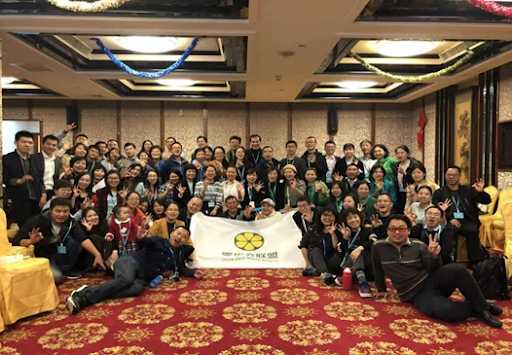
China Zero Waste Alliance 2018 annual meeting in Shenzhen
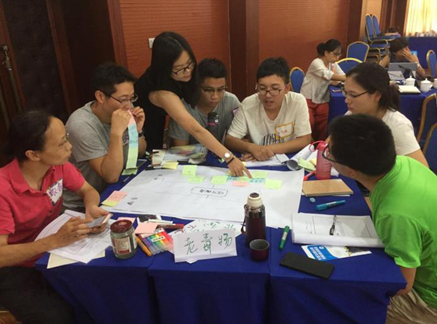
China Zero Waste Alliance partners’ capacity training, 2017
Plastic pollution is worsening in China during the COVID-19 pandemic. Because of concerns about the spread of COVID-19 through reusable items, single-use plastic packaging is widely used. Within the nationwide quarantine, the unrestricted use of disposable plastic bags, takeaway boxes, and masks generates millions of kilos of plastic waste daily. Many environmental NGOs are concerned about the potential environmental pollution caused by using disposable plastic products during the pandemic. The China Zero Waste Alliance and its working partners have launched numerous campaigns and research projects to reduce and control plastic pollution throughout the pandemic¹⁰. In 2021, the China Zero Waste Alliance collaborated with 129 community-based organisations and 685 residential compounds to organise various activities for local residents. The series of activities drew approximately 40,000 residents and reduced 99,903 kilos of plastic waste at the community level. During the pandemic, the building movement was also a priority for China Zero Waste Alliance. The "Zero Waste Day" campaign in 2021 invited 173 organisations and activists to participate¹¹. By the end of the year, the hashtag # ZeroWasteDay had received 23.602 million likes and comments on social media. Meanwhile, the China Zero Waste Alliance proposed 11 policy recommendations on plastic waste regulation at the national level and eventually submitted six of them. It also submitted 8 reports to various governing bodies, including the Ministry of Commerce, the National Development and Reform Commission, and the Hainan Province Department of Ecology and Environment. During the pandemic, China Zero Waste Alliance prioritised movement strengthening by providing grants and consultations to nine grassroots organisations to assist them in implementing new projects. As one of the co-publishers, it released the Guidelines for National Waste Management Strategies on December 10, 2021, the 10th anniversary of the founding of the China Zero Waste Alliance (Chinese Version)¹². During the 2021 pandemic, the China Zero Waste Alliance is also reconsidering the value of its work. In the face of numerous successes and setbacks, they became more aware of the significance of the China Zero Waste Alliance: the network has been working for ten years to address China's plastic pollution and has never given up.
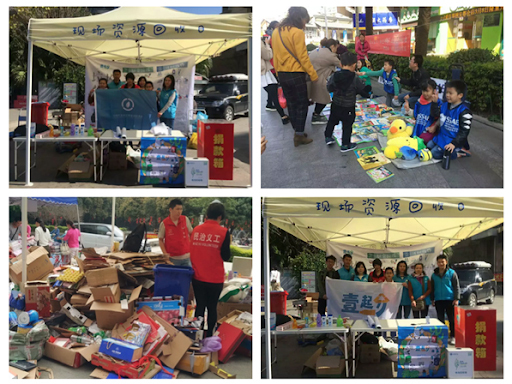
China Zero Waste Alliance partners’ community waste segregation activities
The cooperation between the China Zero Waste Alliance and BFFP could go back to 2016. #breakfreefromplastic (BFFP) held its first global meeting in the Philippines in the summer of 2015, inviting nearly 50 environmental organisations worldwide to develop the BFFP's vision, goals, principles, and strategies. The China Zero Waste Alliance was invited as well. As one of the early members who witnessed the early development of BFFP, China Zero Waste Alliance learned a lot from interacting with BFFP, including strategy learning and international advocacy information sharing. BFFP's work on Narrative Shifting, Zero Waste Cities, and Cooperation has influenced China's early plastic pollution advocacy efforts. In the context of Chinese society, this enables Chinese organisations to initiate actions at a relatively fast pace. The China Zero Waste Alliance and its working partner, Eco-Canton's current initiative to combat plastic microparticle pollution is a good example. The BFFP's international advocacy has inspired regional organisations to engage in relevant advocacy.
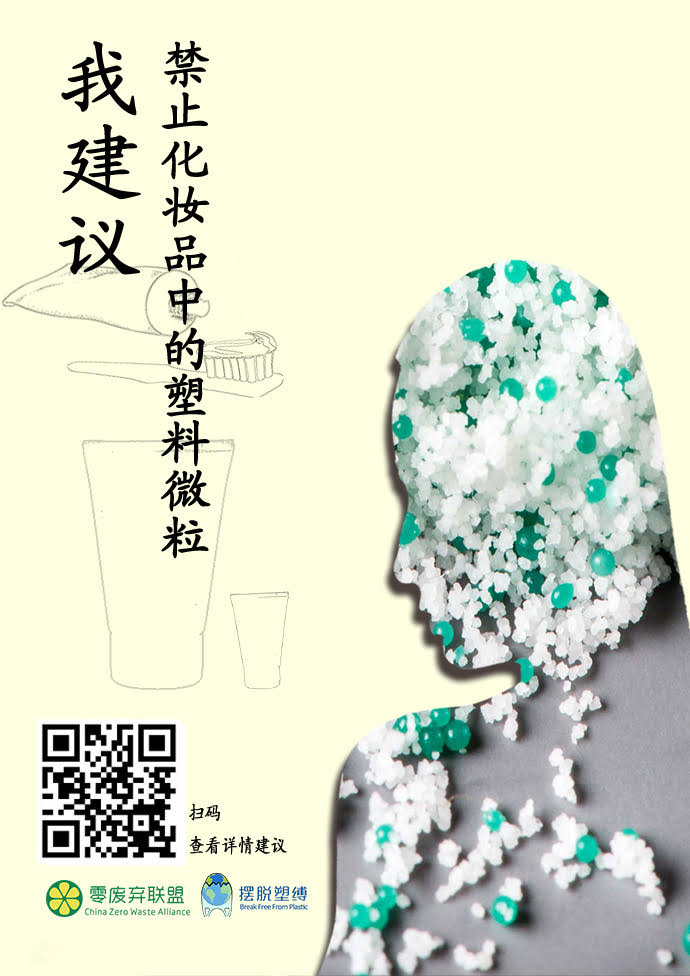
CWZA’s Call for ban on microbead
However, because of China's particular political environment, many successful international advocacy experiences cannot be directly translated into China. This presents a new challenge for Chinese environmental organisations like the China Zero Waste Alliance: how to be successful at home while contributing to global advocacy.
Resources:
[1] Liu, J., Yang, Y., An, L., Liu, Q. and Ding, J. (2021). The Value of China’s Legislation on Plastic Pollution Prevention in 2020. Bulletin of Environmental Contamination and Toxicology. doi:10.1007/s00128-021-03366-6. Available at: https://link.springer.com/article/10.1007/s00128-021-03366-6 [Accessed 28 Aug. 2022].
[2] People's Daily (2020). New Measures to See Gradual Phasing out of Production and Use of Plastic - People’s Daily Online. [online] People’s Daily Online. Available at: http://en.people.cn/n3/2020/0303/c90000-9664293.html [Accessed 28 Aug. 2022].
[3] General Office of the State Council of the People's Republic of China (2007). Notice of the General Office of State Council on Restricting the Production, Sale and Use of Plastic Shopping Bags(国务院办公厅关于限制生产销售使用塑料购物袋的通知). [online] www.gov.cn. Available at: http://www.gov.cn/zwgk/2008-01/08/content_852879.htm [Accessed 28 Aug. 2022].
[4] General Office of the State Council of the People's Republic of China (2017). Notice of the General Office of the State Council on Issuing the Implementation Plan for Prohibiting the Entry of Foreign Garbage and Advancing the Reform of the Solid Waste Import Administration System(国务院办公厅关于印发禁止洋垃圾入境推进固体废物进口管理制度改革实施方案的通知). [online] www.gov.cn. Available at: http://www.gov.cn/zhengce/content/2017-07/27/content_5213738.htm [Accessed 28 Aug. 2022].
[5] Please see its website. Available at https://www.lingfeiqi.org
[6] China Zero Waste Alliance (2022). Annul Review|The 2021 of China Zero Waste Alliance(年度总结丨回顾零废弃联盟的2021). [online] WeChat Official Accounts Platform. Available at: https://mp.weixin.qq.com/s/yLAFobb27s9u2XFkYuA-Sw [Accessed 28 Aug. 2022].
[7] Sina Gongyi (2018). The First Zero Waste Carnival Was over, but the Zero Waste Lifestyle Is Just Beginning首届万科零废弃嘉年华圆满结束,但零废弃生活才刚刚开始. [online] gongyi.sina.com.cn. Available at: https://gongyi.sina.com.cn/gyzx/2018-09-03/doc-ihiixzkm3994322.shtml [Accessed 28 Aug. 2022].
[8] BBC (2020). Single-use plastic: China to Ban Bags and Other Items. BBC News. [online] 20 Jan. Available at: https://www.bbc.com/news/world-asia-china-51171491 [Accessed 28 Aug. 2022].
[9] Wen, Z., Xie, Y., Chen, M. and Dinga, C.D. (2021). China’s Plastic Import Ban Increases Prospects of Environmental Impact Mitigation of Plastic Waste Trade Flow Worldwide.
[10] China Zero Waste Alliance (2020). The pandemic will pass, but ‘YI QI FEN’ is still on going (疫情终将过去 壹起分总在行动. [online] Weixin Official Accounts Platform. Available at: https://mp.weixin.qq.com/s/asNOU6qUnGaajU2rNG0TWw [Accessed 28 Aug. 2022].
[11] Yan, P. (2021). The Fourth Zero Waste Day Was Successfully Held in 70 Cities across China 第四届零废弃日公众倡导活动成功举办 覆盖全国70个城市. [online] www.sohu.com. Available at: https://www.sohu.com/a/485163643_161795 [Accessed 28 Aug. 2022].
[12] Chen, Y. (2021). The Chinese Version of the United Nations National Waste Management Strategy Guide Has Been Released for the First time(联合国《国家废弃物管理战略指南》中文版首次发布. [online] finance.sina.com.cn. Available at: https://finance.sina.com.cn/jjxw/2021-12-15/doc-ikyakumx4208337.shtml [Accessed 28 Aug. 2022].

